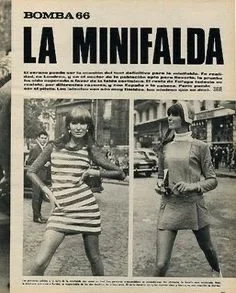Minifaldas, Melenudos & B-Sides: Building Bridges Through Spanish 60s Sound
Music has always been my way of connecting with people, with stories, and most recently, with my culture. As a migrant woman living halfway across the world, my records have become more than just grooves and labels; they’re pieces of home, of history, and of heritage. That’s what drew me to the story behind the records - the world that shaped them.
Spain in the 1960s wasn’t an easy place to make music. Under Franco’s dictatorship, creativity was policed, and expression came with limits. Yet, beneath that surface, young musicians, men and women alike, found ways to rebel with songs. Minifaldas (miniskirts), melenudos (long-haired boys), and fuzzed-out guitars became quiet acts of defiance.
What moves me most about this era is how the community grew through music. These songs - especially the forgotten B-sides - carried coded messages of freedom and togetherness. While the A-sides played it safe for the censors, the flips often held something more real:, a desire to connect beyond the barriers of politics or gender norms.
Bands like Shelly y Nueva Generación, Los Nivram, and Los Salvajes were part of that cultural shift, but I’m especially drawn to the women - like Shelly herself - who carved out a place in a scene that wasn’t always kind to them. Shelly y Nueva Generación only released three singles, none of which ever made the charts. They wanted to sing in English and sound like the soul bands they admired abroad, a bold move that didn’t sit well under the watchful eyes of the regime. It amazes me that artists like her are only now receiving the recognition they deserve, decades later. That’s the beauty of digging for forgotten gems: giving new life to the artists who dared to sound different and share their passion.
When I play these records now in Sydney, I see that same spirit of connection come alive again, on dance floors, in record swaps, and among fellow DJs who lift each other. Music still builds community across borders and generations. It reminds us of where we come from, but also of the shared pulse that keeps us moving forward.
So when you hear me spin a track like “Yo Grito” or “I’m a fool”, know that, for me, it’s not just nostalgia. It’s about keeping those stories alive. The hidden grooves that carried hope, rebellion, and a whole lot of heart. Because music, then and now, has the power to unite us.
— Señorita Dynamita



